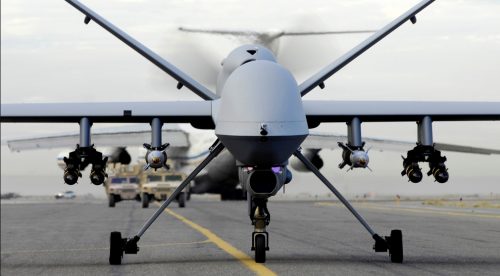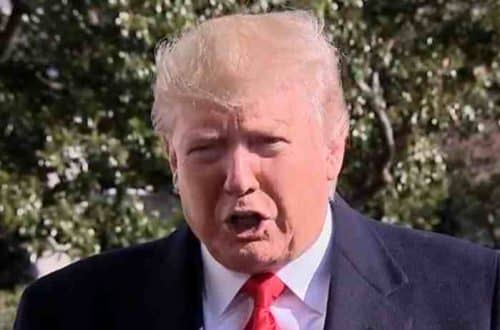Difficult to fabricate
McGeorge said there appears to be a consistency throughout the documents that would be difficult to fabricate and that clearly show the efforts of an intelligence agency with an international focus.
But he questioned how much CIA efforts would be damaged by the disclosures.
“There are some techniques that are very specific … but it’s not earth-shattering,” McGeorge said. “This is certainly not all of CIA’s advanced cyber capability.”
Still, former intelligence officials worry that even if the documents prove to be real, it is the political fallout that will cause the most harm.
One cause for concern is the claim by WikiLeaks that the CIA possesses a library of hacking malware employed by other states that it can use to run so-called false flag operations. In essence, the U.S. would be able to carry out cyberespionage or cyberattacks but leave a trail of evidence that point to U.S. adversaries, such as Russia.
U.S. allies and their relationships with Washington could also be impacted.
In addition to cyber operations located at the CIA’s headquarters in Virginia, the files released by WikiLeaks reveal the agency has been using the U.S. consulate in Frankfurt, Germany, as a covert base.[xyz-ihs snippet=”Adsense-responsive”]WikiLeaks claims the consulate, one of the largest American consulates in the world, housed CIA hackers working deep undercover who helped develop malicious software for attacks and eavesdropping on targets in Europe, the Middle East and Africa.
In one document, the CIA instructed employees: “Do not leave anything electronic or sensitive unattended in your room. (Paranoid, yes, but better safe than sorry.)” It advised them also to enjoy Lufthansa’s free alcohol “in moderation.”
The consulate, located in the northern part of the city and surrounded by high, reinforced perimeter walls, was the focus of German investigations into U.S. intelligence activities following the 2013 revelation, which also came from WikiLeaks, that the U.S. National Security Agency had tapped German Chancellor Angela Merkel’s mobile phone, which prompted sharp and highly public disputes between Washington and Berlin.
WikiLeaks
The WikiLeaks release of the trove of alleged CIA hacking files also comes at an especially sensitive point, with the U.S. intelligence community involved in a confrontation with the administration of President Donald Trump over claimed Russian hacking aimed at influencing last year’s U.S. election.
During his campaign, Trump, at times, defended WikiLeaks. And since taking office, Trump has derided such concerns as “fake news.”
Still, a report by the Office of the Director of National Intelligence earlier this year concluded with “high confidence” that Russian military intelligence “relayed material it acquired from the DNC and senior Democratic officials to WikiLeaks.”
Some former officials see the potential for Moscow’s fingerprints to be on this latest WikiLeaks document dump as well, noting Russia is on the short list of countries capable of foiling the CIA’s cyber efforts.
“It is in Russia’s interest to see the CIA discredited,” said Jonathan Shaw, who until 2012 was responsible for developing Britain’s policy on cybersecurity. He added: “It is in the interests of Donald Trump, too.”
Yet former officials caution there is still more reason to worry.
While WikiLeaks did not publish the codes for the cyberweapons themselves, it warned it might do so at a later date. And there is a good chance others may already have them.
“This is like finding a whole cache of weapons on the battlefield and taking it in,” said Jeff Bardin, who worked in intelligence with the U.S. Air Force.
“It really comes down to the fact that our adversaries know what we’re doing, what we’re using,” said Bardin, now CIO of the cybersecurity firm Treadstone 71. “It’s pretty disappointing that we would allow this to get out.”
2013 disclosures
That disappointment has been magnified following efforts to tighten security after the 2013 disclosures about U.S. National Security Agency contractor Edward Snowden, who promptly fled to Russia.
Another NSA contractor, Harold Martin, was indicted earlier this year on charges related to what officials described as possibly the largest heist of classified government information in history.
Yet Terry Roberts, a former deputy director of U.S. Naval Intelligence, said the biggest risk is not so much the exposure of the cyberweapons themselves, but the extent to which the WikiLeaks document dumps might reveal how U.S. intelligence thinks.
“This is an environment that is never static,” Roberts said. “You’re always creating a tool that’s going to be overcome by another tool that’s going to be overcome by another tool.
“The expertise and the environment of how you develop these tools and deploy them at speed and with effectiveness is truly the secret sauce,” she said.
Source: VOA
Pages: 1 2







